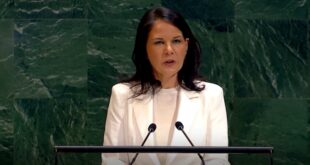Nationals from countries where the US requires no visa, which include Germany, France and Britain, would be exempt from the social media checks.
The proposal was published on Friday, and the US public now has 60 days to comment on the new rules before they are approved or rejected by the Office of Management and Budget (OMB).
Diplomats and travelers facing extreme medical situations are to be exempt from the new, more rigorous vetting procedure proposed by the US State Department. All others, including immigrants and standard visitors, will have to disclose their accounts on a list of social media use in the past five years, as well as telephone numbers and email accounts used in the same period.
Additional information may be required by the US government. Even the people with exemptions could be required to provide their social media info on some occasions.
Similar rules were previously in place for people perceived as a potential security risk, for instance those coming from countries with significant terrorist activity. The change is less severe than what was earlier proposed by some US officials. For instance, then-Homeland Security Secretary John Kelly said people coming to America should be required to give up their social media passwords for checks. The level of access to travellers’ personal devices that officers of the US Customs and Border Patrol are allowed to receive was somewhat restricted in January.
The change may be disputed by the public in the next 60 days, once the department submits its proposal to the Federal Register. So far there has been plenty of response online about how people will now be rejected visas for joking about America and concerns about possible privacy violations.
The American Civil Liberties Union (ACLU) has voiced concerns about what it says is a move that could have a “chilling” effect on freedom of speech and association.
The director of ACLU’s National Security Project, Hina Shamsi, said statements made online by applicants could be “misconstrued or misunderstood” by government officials and that the vetting could lead to discrimination against people from Muslim-majority countries.
In the last fiscal year, 559,536 people applied for US immigration visas and 9,681,913 for various forms of visitor visa.
Trump has vowed to introduce more rigorous vetting for those wanting to enter the US in a bid to prevent terrorism.
Ken Kamara with agency reports
 THE AFRICAN COURIER. Reporting Africa and its Diaspora! The African Courier is an international magazine published in Germany to report on Africa and the Diaspora African experience. The first issue of the bimonthly magazine appeared on the newsstands on 15 February 1998. The African Courier is a communication forum for European-African political, economic and cultural exchanges, and a voice for Africa in Europe.
THE AFRICAN COURIER. Reporting Africa and its Diaspora! The African Courier is an international magazine published in Germany to report on Africa and the Diaspora African experience. The first issue of the bimonthly magazine appeared on the newsstands on 15 February 1998. The African Courier is a communication forum for European-African political, economic and cultural exchanges, and a voice for Africa in Europe.













